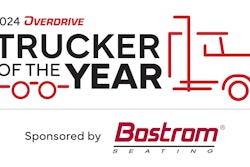
There are three main things to consider when you choose a legal form for a business: asset protection, taxation and simplicity. Each business form has advantages and tradeoffs in those areas.
The majority of owner-operators are sole proprietorships, as are 80 percent of businesses in the United States. A sole proprietorship requires no formal setup. It begins when you start earning money.
 Tax requirements are simple for a sole proprietorship, the most common form of an owner-operator business.
Tax requirements are simple for a sole proprietorship, the most common form of an owner-operator business.In the eyes of the law, the owner of a sole proprietorship is the business. Debt incurred by the business is the responsibility of the owner. If your business gets into financial trouble, creditors can seize everything you own, including your house and other personal possessions. If you have an accident while driving and injure someone, the injured party can collect your business assets and your personal assets.
Sole proprietorship is great for owner-operators starting out. Taxes are fairly simple. You file IRS Schedule C, which details your business income and expenses, along with a 1040. If you operate more than one business, or if you file jointly with your spouse and she owns a business, you have to file only a Schedule C for each business. In addition, because there’s no employer to withhold Social Security taxes, a sole proprietor simply pays his own taxes quarterly.
A partnership is similar to a sole proprietorship, except it is owned by more than one person. The partnership isn’t taxed as a collective entity. The individual partners are taxed, and they file individual income tax returns.
A handshake or verbal agreement is all you need to establish a legally binding partnership. The partners are the business, so in case of legal or financial judgments, injured parties or creditors can come after the personal assets of the partners. Partners, however, should write an agreement that stipulates the role of each partner, as well as distribution of profit and loss. The agreement also should spell out a formal method for resolving conflict, such as naming an arbitrator.
A partnership has no life beyond the death of a partner. Unless there is a formal partnership agreement, the state decides distribution of assets.
A corporation is treated separately from its owners, shareholders and employees. Incorporation laws differ from state to state, and the cost of incorporating varies from a few hundred to a few thousand dollars. In addition to setup costs, incorporation requires forms, records and formal annual meetings.
 Because each state treats limited liability companies differently, trucking LLCs can encounter problems. If you have an Ohio LLC, for example, and you have an accident in New York, your liability could be at risk.
Because each state treats limited liability companies differently, trucking LLCs can encounter problems. If you have an Ohio LLC, for example, and you have an accident in New York, your liability could be at risk.To set up a C corporation, you must file articles of incorporation with your state. Although do-it-yourself kits for incorporating are available, it’s best to hire an attorney to avoid mistakes and to address your state’s laws. C corporations are notorious for double taxation, which means the corporation is taxed, and the owners are taxed on their dividends and salary.
The S corporation, however, offers the limited liability of a C corporation without double taxation. The owners or shareholders are taxed only on personal income, as in a partnership or sole proprietorship. In addition, the net income of an S corporation is available for distribution among the shareholders as dividends.
A limited liability company offers benefits similar to those of an S corporation, but without the membership limitations. Like an S corporation, an LLC offers liability protection for the owners and profits pass through the owner’s personal income tax returns. This means no double taxation. Although LLCs are becoming more popular, be sure you fully understand their ramifications before you choose this business form.
When you ask lawyers or CPAs about the best form of business, you’ll get different answers. Before you make that decision, have your accountant run the numbers on each option and compare them based on your income as a sole proprietor.
Kevin Rutherford is an accountant, small-fleet owner and the host of “Trucking Business & Beyond,” which airs on Sirius XM Radio’s Road Dog Trucking Radio. Contact Rutherford through his website, LetsTruck.com.









